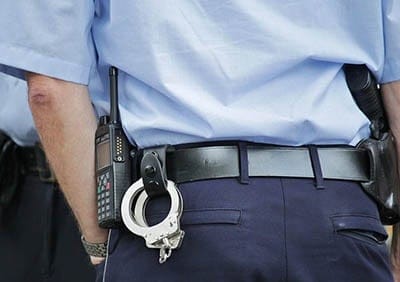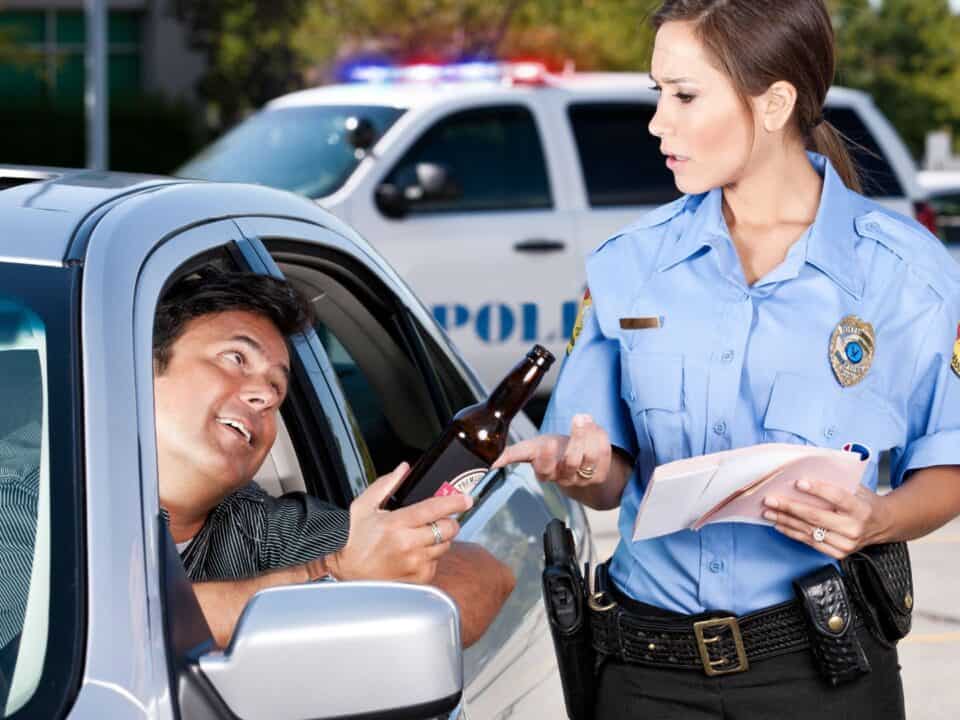 New Year’s Eve is the one the biggest days of the year for parties. Whether you’re heading out on the town or to a friend’s house, hosting your own gathering, or you’re the type to curl up with a mug of tea and watch the ball drop at midnight, it’s important to stay safe and know your rights.
New Year’s Eve is the one the biggest days of the year for parties. Whether you’re heading out on the town or to a friend’s house, hosting your own gathering, or you’re the type to curl up with a mug of tea and watch the ball drop at midnight, it’s important to stay safe and know your rights.
What are your rights if the police come to your home? We have a short list of information you need to know.
First Off: It’s Probably a Noise Complaint
The most common reason that police are called out to someone’s home during New Year’s Eve is due to the noise of a party keeping neighbors or nearby locals awake past what is generally considered a reasonable hour.
If you hear a knock at the door and see police officers, do not assume they are there to enter the home. Simply step outside, close the door behind you, and ask what they need. Odds are good that they will simply let you know that a noise complaint has been called in and ask you to keep things a little quieter.
If you ask your guests to be quieter, you may find that no further action is required on anyone’s part.
Are They Asking to Come Inside?
If the call the police received included a tip that leads them to believe there may be underage drinking or drug use going on inside the location of the party, they may want to come inside and speak to the partygoers.
The Supreme Court, in Fernandez v. California, held that warrantless searches are legal so long as one resident consents to the search, even if another resident or residents previously objected. However, this does not mean that all warrantless police searches are legal.
If you are concerned, you should contact a legal representative to discuss the situation as it unfolded and work on what the next step should be.
What If They See Something in Plain View?
If the police, standing at your door or window, are able to see drug paraphernalia or other indications of a crime being committed in what is known as “plain view”, they may enter your home without a warrant.
If you are arrested either inside or just outside your residence, the police may search the residence in order to secure their own safety and prevent possible destruction of evidence.
There is one further case in which the police may enter your home without a warrant, known as “exigent circumstances.” This refers to specific emergency situations where the process of getting a valid search warrant would compromise public safety or lead to the loss of evidence. An example of exigent circumstances would be if a suspect is about to escape by running through the back door of a residence and the police enter the home in order to prevent this.
What Should I Do While Talking to the Police?
The police are likely simply following up on a noise disturbance complaint. Remain professional and non-confrontational while answering their questions respectfully. You may find that the interaction is brief and perfectly friendly.
If you are uncomfortable answering a question they ask, simply decline politely to answer.
You may or may not choose to show your ID. You are not required to show your ID to the police unless you are driving or being arrested. This will likely be a decision made based on the circumstances at the time of the confrontation with law enforcement.
Whatever you do, be respectful. The police officers are human beings just like you and your party guests. They’re simply acting according to their own job duties. If the police have been called out for a noise complaint or due to a complaint about possible underage drinking or drug use, they just want to verify what’s going on and ensure that you are on notice that a complaint has been reported
However, should the police officers speak or behave in ways that you believe are infringing upon your rights as a citizen, it is advisable to contact a legal representative to discuss what happened and whether or not it fell within the realm of law enforcement rights.
Should You Send Everyone Home?
If you are concerned that further complaints will be called in, it may be best to call a premature end to the party and send your guests on their way.
Make sure everyone who attended the party is either sober or has a sober ride — if they don’t have a Designated Driver, offer to call them a cab or an Uber to ensure they make it home safely.
If the police are called out a second or third time to your residence, you may end up receiving a ticket or the police officers may return with a search warrant.
Do You Need Legal Representation? We’re Here to Help.
At BNTD Law, we have experience with criminal defense. We have represented clients accused of drug offenses, crimes against property, and more. With over 35 years of experience in resolving complex criminal cases at both the state and federal level, we are prepared to help our clients ensure that their individual rights are represented. If you’ve been charged with a serious offense and you’re looking for legal representation, give BNTD Law a call. Reach us by phone at (803) 779-7599 or contact us online at any time to request your FREE consultation!




